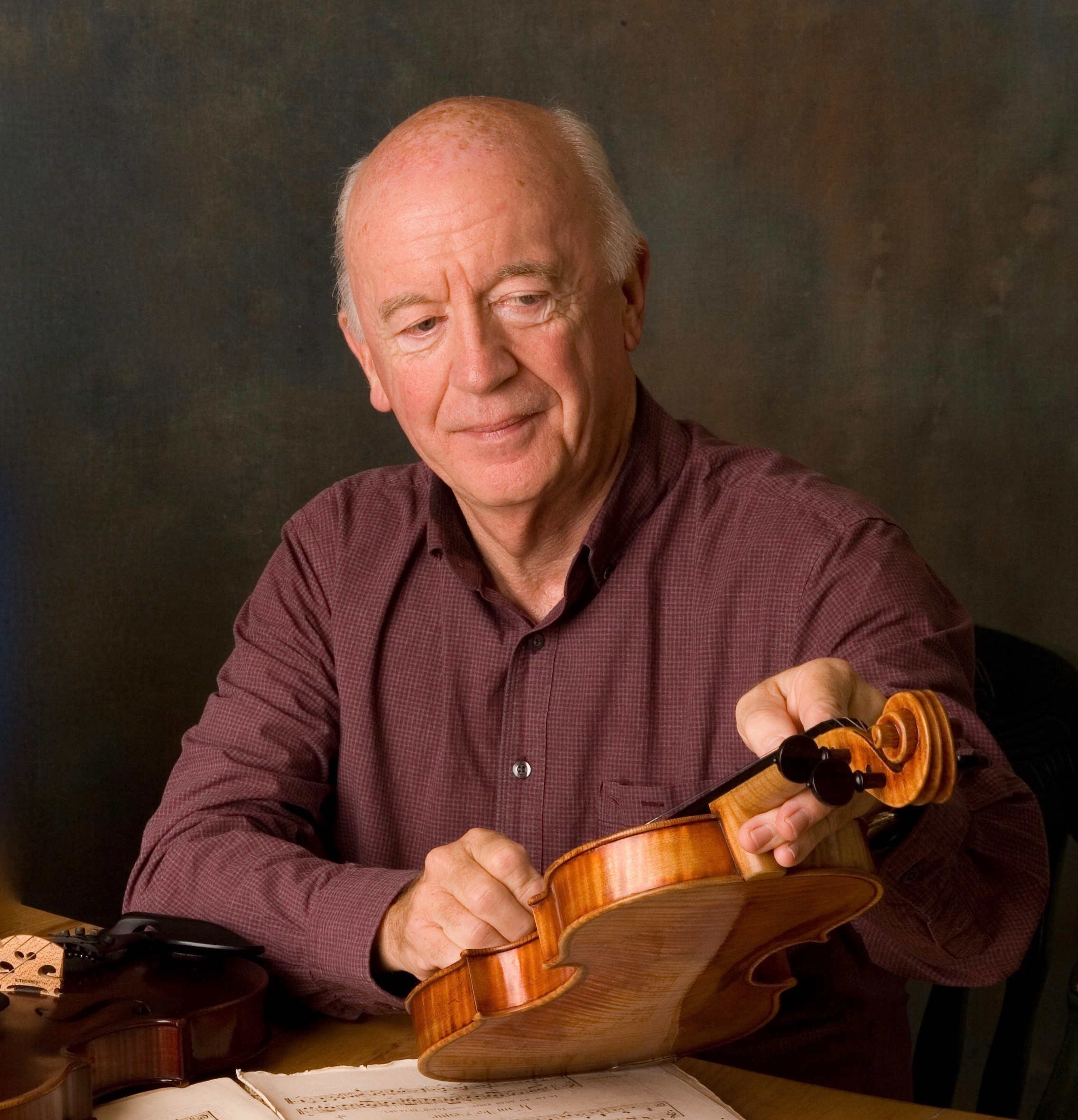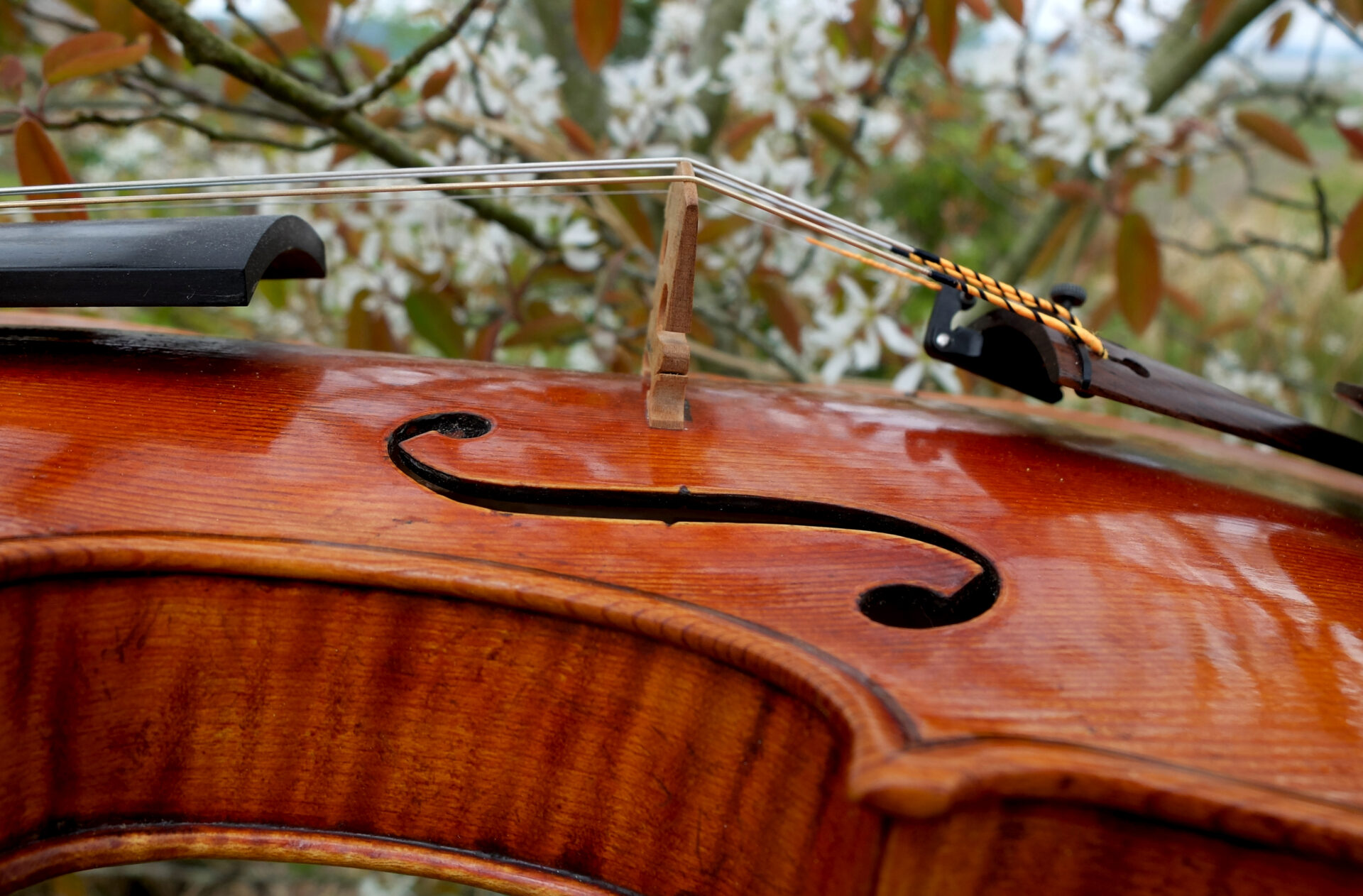Seamus McGuire
Born in the traditional Irish music heartland of south County Sligo, Séamus McGuire grew up in a family which nurtured both traditional and classical music. Seamus got his first lessons in traditional fiddle-playing from his parents Paddy and Jo at about the age of five, and began classical violin lessons the following year. Ten years later, aged sixteen, he won the prestigious senior Fiddler of Dooney competition in Sligo and a few years later the Oireachtas senior fiddle competition in Dublin. He was soon recognized as one of the country's most promising young traditional fiddle-players.
Looking back, Seamus remembers many positive influences on his playing when growing up in Sligo. Legendary Irish-American fiddle-players such as Lad O'Beirne were visitors to the McGuire family home in Sligo during their holidays from New York. Seamus recalls Lad bringing gifts of tape-recordings of sessions he shared in New York with Andy McGann and Eleanor Kane. During a meeting at the Fleadh Ceoil in Sligo with another iconic fiddle-player Paddy Killoran, the young Séamus’ autograph book was signed by Paddy with the encouraging note ‘from one violinist to another’. A few years later, another family friend Charlie Lennon composed the reel Master Séamus for Seamus aged 14. This was one of Charlie’s earliest compositions and is still regarded as one of his finest.
By the early 1980s Séamus became well-known in the wider traditional Irish music world because of his fiddle duet playing with his younger brother Manus. Their debut album, The Humours of Lissadell (Folk Legacy Records, USA, 1980) was greeted with critical acclaim and marked the start of a remarkable adventure in music performance, collaboration and recording.
Since this early collaboration with his brother, Seamus has gone on to become one of the most versatile traditional Irish fiddle-players of his generation. As a member of the group Buttons and Bows and The West Ocean String Quartet he has succeeded in crossing the genre lines between traditional and classical music.

The influential, much-acclaimed band Buttons & Bows originated in 1983 at sessions in Kinvara, Co.Galway where Séamus and Manus shared tunes with legendary box-player Jackie Daly and the innovative mandocello player Garry O Bríain. Their recordings to date include ‘Buttons & Bows’, ‘The First Month of Summer’, ‘Gracenotes’ and ‘The Return of Spring’. Along with Daithí Sproule and Manus, Seamus recorded the album ‘Carousel’ in 1984 featuring the songs of West Donegal and the tunes of Sligo.
The music of The West Ocean String Quartet, mostly arranged/composed by Neil Martin, has become well-known and respected world-wide; even further away, their recordings have been played on the international space station as it circled the globe! The quartet performed at The Royal Albert Hall, London, in “Ceiliúradh”, a celebration of President Michael D Higgins’ historic visit to the United Kingdom in 2014. Also in 2014, the quartet won traditional album of the year award in The Irish Times. Their album An Indigo Sky received a 5-star review in The Ticket, The Irish Times. ‘Atlantic Edge’, their most recent album (2020), was listed in end-of-year reviews as one of the top 5 traditional albums of 2020.
Seamus has also worked in a successful traditional music collaboration with the Leitrim flute-player, John Lee. Their album, The Missing Reel, with the late Arty McGlynn is regarded as essential to any collection of Irish traditional music recordings. The Legacy of Stephen Grier, the second album from Seamus and John Lee (2018) is of considerable archival significance in bringing the 19th century Grier manuscript collection to a wide audience.
Research for the Grier album helped to uncover the existence of a long-lost Carolan tune, simply titled ‘Planxty No 12’. Meticulous research by Leitrim musicians Conor Ward and Fr. John Quinn played a key part in this discovery. Since the album’s release, the Grier manuscript collection has been digitized by The Irish Traditional Music Archive.
Seamus’ first solo album, “The Wishing Tree”, recorded by Garry O’Briain and inspired by the eponymous poem by Seamus Heaney, was named by The Irish Times as one of the top five traditional recordings in Ireland in 1995.
Seamus’ other collaborations include performances with the traditional singer Íarla o Lionáird (BBC 2 NI 2020, FleadhFest TG4 2021 filmed at Lissadell House), Oileán na Marbh song cycle with Maighread Ni Dhomhnaill, The Guiding Moon with Matt Molloy, The Brendan Voyage with Liam O’Flynn and the West Ocean String Quartet, Dingle (2001), ‘Folk Tale’ album with Christy Moore (2011), ‘Spirit’ album with Dervish (2003), The Minstrel Boy & Silent O Moyle with Eimear Quinn. The quartet has also collaborated with singers Brian Kennedy and Sinead O’Connor.
In addition to performing and recording, Séamus has worked as a fiddle tutor at the B Mus degree programme in traditional music performance at Ulster University, Magee campus, Derry. Until the arrival of the Covid pandemic, he worked as a music tutor with the Donegal Education and Training Board based at the Regional Cultural Centre, Letterkenny. Other teaching experience includes workshops at Boston College Gaelic Roots Festival, USA; Rencontres Irlandais, Tocane St Apre, France; Department of Irish Studies, Notre Dame University, South Bend, Indiana, USA; Music Generation Project, The Model Arts Centre, Sligo; ‘Mind Your Quavers’ adult back-to-music group Donegal ETB; the “Blow the Dust off your Old Trumpet” back-to-music project at National Concert Hall, Dublin; Masterclasses for Coirm, Donegal; Masterclasses for Ceol na Coille, Donegal; Fiddle workshops at the Seamus Grant Festival, Clonmany, Co Donegal. Seamus was virtual artist-in-residence at the Regional Cultural Centre in Letterkenny in June 2020 during the first Covid lockdown. This involved recording and posting a tune each day for two weeks.
His compositions include Glenveagh Castle (commissioned by Dúchas / The Department of Arts, Heritage and Gaeltacht for the Ceol Reoite Millenium project 2000), recorded by The West Ocean String Quartet; The Wishing Tree inspired by the poetry of Seamus Heaney; The Curlew’s Call, a suite commissioned by Ceol na Coille, Donegal; Oyster Island (for the Buttons & Bows album, The Return of Spring); The Vagabond (for the West Ocean String Quartet), and The Chestnut Hill Reel (for the Seamus Connolly digital archive collection of Irish Music, Boston College, USA).
A recent composition for viola, ‘The Dreamer’s Reel,’ is included in the album ‘An Irish Viola / Vióla Gaelach’, which Seamus recorded with Steve Cooney – this is due for release in late 2021.
In December 2020 he performed on 'The Sligo Tunesmith' - The Story of James 'Lad' O'Beirne in Music, a musical documentary film based on one of the great Sligo fiddle masters - James 'Lad' O'Beirne (1911-1980). The programme shared memories and music from Lad’s life featuring private audio recordings and performances of Sligo fiddle tunes by contemporary Sligo fiddle players.
‘Séamus McGuire’s supple tone was a delight, his instrument tracing shapes every bit as distinctive as anything John Coltrane, Ben Webster or Martin Hayes have created’ - Siobhán Long, The Irish Times 28.01.13
‘When the McGuire brothers pick up their fiddles, the rest is pure bliss; close your eyes and this dreadful world seems bearable; you’ll hear music of the highest order from Ireland, Québec, Shetland and Scandinavia’ - Cathal Mac Coille, The Sunday Tribune.
